With the Night Mail (12)
By:
June 6, 2012
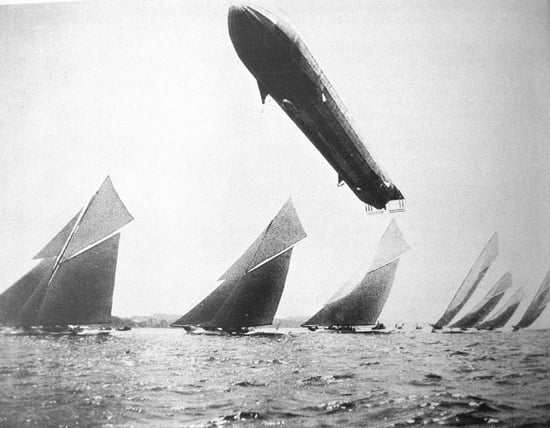
HILOBROW is pleased to present the twelfth and final installment of our serialization of Rudyard Kipling’s With the Night Mail (and his follow-up story, “As Easy as A.B.C.”).
With the Night Mail follows the exploits of an intercontinental mail dirigible battling the perfect storm. Between London and Quebec we learn that a planet-wide Aerial Board of Control (A.B.C.) now enforces a technocratic system of command and control not only in the skies but in world affairs, too. A follow-up story, “As Easy As A.B.C.,” recounts what happens when agitators in Chicago demand a return of democracy: The A.B.C. sends zeppelins armed with sound weapons to subdue not the agitators, but a mob who would destroy them! With the Night Mail is set in 2000, and it first appeared in 1905; 2012 marks the centennial of the first publication of “As Easy As A.B.C.”
In June, HiLoBooks will publish a beautiful new edition of With the Night Mail (and “As Easy as A.B.C.”), checked against the 1909 first published edition (Doubleday), with an Introduction by science fiction author Matthew De Abaitua, and an Afterword by science fiction author Bruce Sterling. SUPPLIES ARE LIMITED! CLICK HERE TO ORDER YOUR COPY.
SUBSCRIBE to HILOBROW’s serialized fiction via RSS.
LAST WEEK: “Then the surfacers rolled up, two on each side of the Statue. With one accord the spectators looked elsewhere, but there was no need. Keefe turned on full power, and the thing simply melted within its case. All I saw was a surge of white-hot metal pouring over the plinth, a glimpse of Salati’s inscription, ‘To the Eternal Memory of the Justice of the People,’ ere the stone base itself cracked and powdered into finest lime. The crowd cheered.”
ALL EXCERPTS: 1 | 2 | 3 | 4 | 5 | 6 | 7 | 8 | 9 | 10 | 11 | 12
‘Thank you,’ said De Forest; but we want our breakfasts, and I expect you do too. Good-bye, Mr. Mayor! Delighted to see you at any time, but I hope I shan’t have to, officially, for the next thirty years. Good-bye, madam. Yes. We’re all given to nerves nowadays. I suffer from them myself. Good-bye, gentlemen all! You’re under the tyrannous heel of the Board from this moment, but if ever you feel like breaking your fetters you’ve only to let us know. This is no treat to us. Good luck!’
We embarked amid shouts, and did not check our lift till they had dwindled into whispers. Then De Forest flung himself on the chart room divan and mopped his forehead.
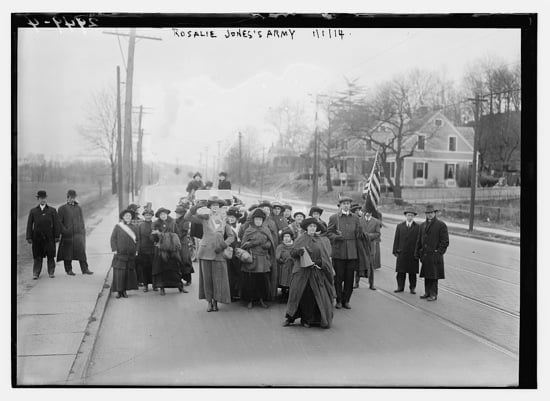
‘I don’t mind men,’ he panted, ‘but women are the devil!’
‘Still the devil,’ said Pirolo cheerfully. ‘That one would have suicided.’
‘I know it. That was why I signalled for the flying loop to be clapped on her. I owe you an apology for that, Arnott. I hadn’t time to catch your eye, and you were busy with our caitiffs. By the way, who actually answered my signal? It was a smart piece of work.’
‘Ilroy,’ said Arnott; ‘but he overloaded the wave. It may be pretty gallery-work to knock a knife out of a lady’s hand, but didn’t you notice how she rubbed ’em? He scorched her fingers. Slovenly, I call it.’
‘Far be it from me to interfere with Fleet discipline, but don’t be too hard on the boy. If that woman had killed herself they would have killed every Servile and everything related to a Servile throughout the district by nightfall.’
‘That was what she was playing for,’ Takahira said. ‘And with our Fleet gone we could have done nothing to hold them.’
‘I may be ass enough to walk into a ground-circuit,’ said Arnott, ‘but I don’t dismiss my Fleet till I’m reasonably sure that trouble is over. They’re in position still, and I intend to keep ’em there till the Serviles are shipped out of the district. That last little crowd meant murder, my friends.’
‘Nerves! All nerves!’ said Pirolo. ‘You cannot argue with agoraphobia.’
‘And it is not as if they had seen much dead — or is it?’ said Takahira.
‘In all my ninety years I have never seen death.’ Dragomiroff spoke as one who would excuse himself. ‘Perhaps that was why — last night —’
Then it came out as we sat over breakfast, that, with the exception of Arnott and Pirolo, none of us had ever seen a corpse, or knew in what manner the spirit passes.
‘We’re a nice lot to flap about governing the Planet,’ De Forest laughed. ‘I confess, now it’s all over, that my main fear was I mightn’t be able to pull it off without losing a life.’
‘I thought of that too,’ said Arnott; ‘but there’s no death reported, and I’ve inquired everywhere. What are we supposed to do with our passengers? I’ve fed ’em.’
‘We’re between two switches,’ De Forest drawled. ‘If we drop them in any place that isn’t under the Board, the natives will make their presence an excuse for cutting out, same as Illinois did, and forcing the Board to take over. If we drop them in any place under the Board’s control they’ll be killed as soon as our backs are turned.’
‘If you say so,’ said Pirolo thoughtfully, ‘I can guarantee that they will become extinct in process of time, quite happily. What is their birth-rate now?’
‘Go down and ask ’em,’ said De Forest.
‘I think they might become nervous and tear me to bits,’ the philosopher of Foggia replied.
‘Not really? Well?’
‘Open the bilge-doors,’ said Takahira with a downward jerk of the thumb.
‘Scarcely — after all the trouble we’ve taken to save ’em,’ said De Forest.
‘Try London,’ Arnott suggested. ‘You could turn Satan himself loose there, and they’d only ask him to dinner.’
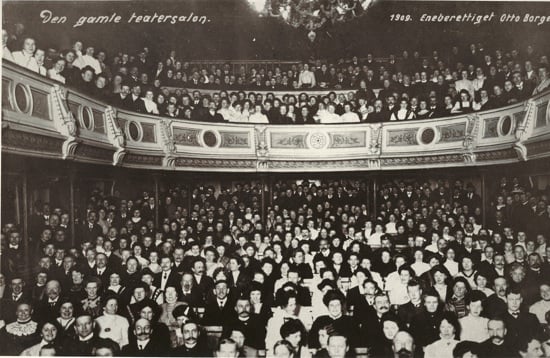
‘Good man! You’ve given me an idea. Vincent! Oh, Vincent!’ He threw the General Communicator open so that we could all hear, and in a few minutes the chartroom filled with the rich, fruity voice of Leopold Vincent, who has purveyed all London her choicest amusements for the last thirty years. We answered with expectant grins, as though we were actually in the stalls of, say, the Combination on a first night.
‘We’ve picked up something in your line,’ De Forest began.
‘That’s good, dear man. if it’s old enough. There’s nothing to beat the old things for business purposes. Have you seen London, Chatham, and Dover at Earl’s Court? No? I thought I missed you there. Im-mense! I’ve had the real steam locomotive engines built from the old designs and the iron rails cast specially by hand. Cloth cushions in the carriages, too! Im-mense! And paper railway tickets. And Polly Milton.’
‘Polly Milton back again!’ said Arnott rapturously. ‘Book me two stalls for to-morrow night. What’s she singing now, bless her?’
‘The old songs. Nothing comes up to the old touch. Listen to this, dear men.’ Vincent carolled with flourishes:
Oh, cruel lamps of London,
If tears your light could drown,
Your victims’ eyes would weep them,
Oh, lights of London Town!
Then they weep.’
‘You see?’ Pirolo waved his hands at us. ‘The old world always weeped when it saw crowds together. It did not know why, but it weeped. We know why, but we do not weep, except when we pay to be made to by fat, wicked old Vincent.’
‘Old, yourself!’ Vincent laughed. ‘I’m a public benefactor, I keep the world soft and united.’
‘And I’m De Forest of the Board,’ said De Forest acidly, ‘trying to get a little business done. As I was saying, I’ve picked up a few people in Chicago.’
‘I cut out. Chicago is —’
‘Do listen! They’re perfectly unique.’
‘Do they build houses of baked mud blocks while you wait — eh? That’s an old contact.’
‘They’re an untouched primitive community, with all the old ideas.’
‘Sewing-machines and maypole-dances? Cooking on coal-gas stoves, lighting pipes with matches, and driving horses? Gerolstein tried that last year. An absolute blow-out!’
De Forest plugged him wrathfully, and poured out the story of our doings for the last twenty-four hours on the top-note.
‘And they do it all in public,’ he concluded. ‘You can’t stop ’em. The more public, the better they are pleased. They’ll talk for hours — like you! Now you can come in again!’
‘Do you really mean they know how to vote?’ said Vincent. ‘Can they act it?’
‘Act? It’s their life to ’em! And you never saw such faces! Scarred like volcanoes. Envy, hatred, and malice in plain sight. Wonderfully flexible voices. They weep, too.’
‘Aloud? In public?’
‘I guarantee. Not a spark of shame or reticence in the entire installation. It’s the chance of your career.’
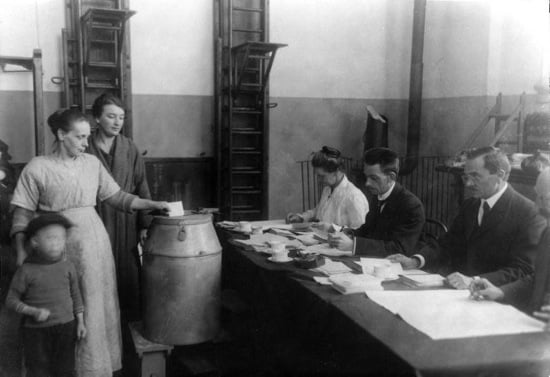
‘D’you say you’ve brought their voting props along — those papers and ballot-box things?’
‘No, confound you! I’m not a luggage-lifter. Apply direct to the Mayor of Chicago. He’ll forward you everything. Well?’
‘Wait a minute. Did Chicago want to kill ’em? That ’ud look well on the Communicators.’
‘Yes! They were only rescued with difficulty from a howling mob — if you know what that is.’
‘But I don’t,’ answered the Great Vincent simply.
‘Well then, they’ll tell you themselves. They can make speeches hours long.’
‘How many are there?’
‘By the time we ship ’em all over they’ll be perhaps a hundred, counting children. An old world in miniature. Can’t you see it?’
‘M— yes; but I’ve got to pay for it if it’s a blow-out, dear man.’
‘They can sing the old war songs in the streets. They can get word-drunk, and make crowds, and invade privacy in the genuine old-fashioned way; and they’ll do the voting trick as often as you ask ’em a question.’
‘Too good!’ said Vincent.
‘You unbelieving Jew! I’ve got a dozen head aboard here. I’ll put you through direct. Sample ’em yourself.’
He lifted the switch and we listened. Our passengers on the lower deck at once, but not less than five at a time, explained themselves to Vincent. They had been taken from the bosom of their families, stripped of their possessions, given food without finger-bowls, and cast into captivity in a noisome dungeon.
‘But look here,’ said Arnott aghast; ‘they’re saying what isn’t true. My lower deck isn’t noisome, and I saw to the finger-bowls myself.’
‘My people talk like that sometimes in Little Russia,’ said Dragomiroff. ‘We reason with them. We never kill. No!’
‘But it’s not true,’ Arnott insisted. ‘What can you do with people who don’t tell facts? They’re mad!’
‘Hsh!’ said Pirolo, his hand to his ear. ‘It is such a little time since all the Planet told lies.’
We heard Vincent silkily sympathetic. Would they, he asked, repeat their assertions in public — before a vast public? Only let Vincent give them a chance, and the Planet, they vowed, should ring with their wrongs. Their aim in life — two women and a man explained it together — was to reform the world. Oddly enough, this also had been Vincent’s life-dream. He offered them an arena in which to explain, and by their living example to raise the Planet to loftier levels. He was eloquent on the moral uplift of a simple, old-world life presented in its entirety to a deboshed civilisation.
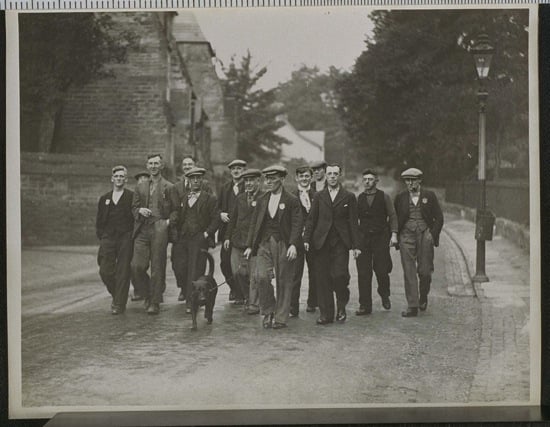
Could they — would they — for three months certain, devote themselves under his auspices, as missionaries, to the elevation of mankind at a place called Earl’s Court, which he said, with some truth, was one of the intellectual centres of the Planet? They thanked him, and demanded (we could hear his chuckle of delight) time to discuss and to vote on the matter. The vote, solemnly managed by counting heads — one head, one vote — was favourable. His offer, therefore, was accepted, and they moved a vote of thanks to him in two speeches — one by what they called the ‘proposer’ and the other by the ‘seconder.’
Vincent threw over to us, his voice shaking with gratitude:
‘I’ve got ’em! Did you hear those speeches? That’s Nature, dear men. Art can’t teach that. And they voted as easily as lying. I’ve never had a troupe of natural liars before. Bless you, dear men! Remember, you’re on my free lists for ever, anywhere — all of you. Oh, Gerolstein will be sick — sick!’
‘Then you think they’ll do?’ said De Forest.
‘Do? The Little Village’ll go crazy! I’ll knock up a series of old-world plays for ’em. Their voices will make you laugh and cry. My God, dear men, where do you suppose they picked up all their misery from, on this sweet earth? I’ll have a pageant of the world’s beginnings, and Mosenthal shall do the music. I’ll —’
‘Go and knock up a village for ’em by to-night. We’ll meet you at No. 15 West Landing Tower,’ said De Forest. ‘Remember the rest will be coming along to-morrow.’
‘Let ’em all come!’ said Vincent. ‘You don’t know how hard it is nowadays even for me, to find something that really gets under the public’s damned iridium-plated hide. But I’ve got it at last. Good-bye!’
‘Well,’ said De Forest when we had finished laughing, ‘if any one understood corruption in London I might have played off Vincent against Gerolstein, and sold my captives at enormous prices. As it is, I shall have to be their legal adviser to-night when the contracts are signed. And they won’t exactly press any commission on me, either.’
‘Meantime,’ said Takahira, ‘we cannot, of course, confine members of Leopold Vincent’s last-engaged company. Chairs for the ladies, please, Arnott.’
‘Then I go to bed,’ said De Forest. ‘I can’t face any more women!’ And he vanished.
When our passengers were released and given another meal (finger-bowls came first this time) they told us what they thought of us and the Board; and, like Vincent, we all marvelled how they had contrived to extract and secrete so much bitter poison and unrest out of the good life God gives us. They raged, they stormed, they palpitated, flushed and exhausted their poor, torn nerves, panted themselves into silence, and renewed the senseless, shameless attacks.
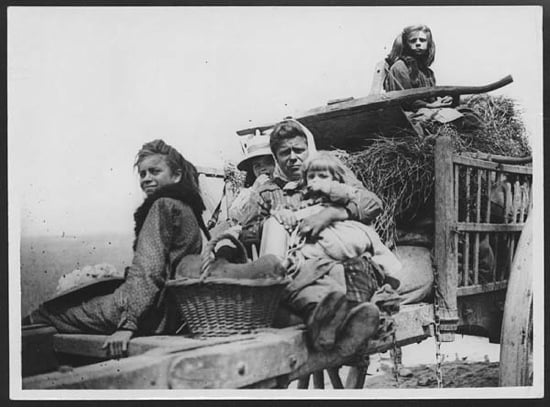
‘But can’t you understand,’ said Pirolo pathetically to a shrieking woman, ‘that if we’d left you in Chicago you’d have been killed?’
‘No, we shouldn’t. You were bound to save us from being murdered.’
‘Then we should have had to kill a lot of other people.’
‘That doesn’t matter. We were preaching the Truth. You can’t stop us. We shall go on preaching in London; and then you’ll see!’
‘You can see now,’ said Pirolo, and opened a lower shutter.
We were closing on the Little Village, with her three Million people spread out at ease inside her ring of girdling Main-Traffic lights — those eight fixed beams at Chatham, Tonbridge, Redhill, Dorking, Woking, St. Albans, Chipping Ongar, and Southend.
Leopold Vincent’s new company looked, with small pale faces, at the silence, the size, and the separated houses.
Then some began to weep aloud, shamelessly — always without shame.
Whether the State can loose and bind
In Heaven as well as on Earth:
If it be wiser to kill mankind
Before or after the birth —
These are matters of high concern
Where State-kept school men are;
But Holy State (we have lived to learn)
Endeth in Holy War.
Whether The People be led by the Lord,
Or lured by the loudest throat:
If it be quicker to die by the sword
Or cheaper to die by vote —
These are the things we have dealt with once,
(And they will not rise from their grave)
For Holy People, however it runs,
Endeth in wholly Slave.
Whatsoever, for any cause,
Seeketh to take or give,
Power above or beyond the Laws,
Suffer it not to live!
Holy State or Holy King —
Or Holy People’s Will —
Have no truck with the senseless thing.
Order the guns and kill!
Saying — after — me:—
Once there was The People —Terror gave it birth;
Once there was The People and it made a Hell of Earth.
Earth arose and crushed it. Listen, O ye slain!
Once there was The People — it shall never be again!
RADIUM AGE SCIENCE FICTION: “Radium Age” is HILOBROW’s name for the 1904–33 era, which saw the discovery of radioactivity, the revelation that matter itself is constantly in movement — a fitting metaphor for the first decades of the 20th century, during which old scientific, religious, political, and social certainties were shattered. This era also saw the publication of genre-shattering writing by Edgar Rice Burroughs, Sax Rohmer, E.E. “Doc” Smith, Jack London, Arthur Conan Doyle, Aldous Huxley, Olaf Stapledon, Karel Čapek, H.P. Lovecraft, Charlotte Perkins Gilman, Yevgeny Zamyatin, Philip Gordon Wylie, and other pioneers of post-Verne/Wells, pre-Golden Age “science fiction.” More info here.
HILOBOOKS: The mission of HiLoBooks is to serialize novels on HiLobrow; and also, as of 2012, operating as an imprint of Richard Nash’s Cursor, to reissue Radium Age science fiction in beautiful new print editions. So far, we have published Jack London’s The Scarlet Plague, Rudyard Kipling’s With the Night Mail (and “As Easy as A.B.C.”), Arthur Conan Doyle’s The Poison Belt, H. Rider Haggard’s When the World Shook, Edward Shanks’s The People of the Ruins, William Hope Hodgson’s The Night Land, and J.D. Beresford’s Goslings. Forthcoming: E.V. Odle’s The Clockwork Man, Cicely Hamilton’s Theodore Savage, and Muriel Jaeger’s The Man with Six Senses. For more information, visit the HiLoBooks homepage.
READ: You are reading Rudyard Kipling’s With the Night Mail and “As Easy As A.B.C.” Also read our serialization of: Jack London’s The Scarlet Plague | H. Rider Haggard’s When The World Shook
ORIGINAL FICTION: HILOBROW has serialized three novels: James Parker’s The Ballad of Cocky The Fox (“a proof-of-concept that serialization can work on the Internet” — The Atlantic) and Karinne Keithley Syers’s Linda Linda Linda. We also publish original stories and comics.
